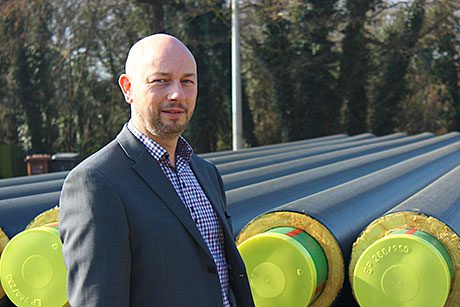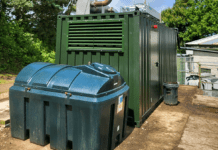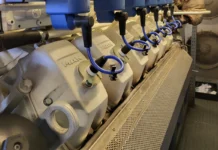
A manufacturer of district heating pipe systems has called for an end to the way the Renewables Obligation is incentivising electricity producers to use biomass fuels in inefficient, conventional power stations.
It is effectively squandering the waste heat produced according to Mark Whettall, managing director of CPV Ltd, who added: “I of course acknowledge that using biomass is much better than simply burning fossil fuels such as coal, but to do it at such a low level of efficiency – and furthermore provide financial incentives for doing so – really has to be brought into question.
“It’s a finite resource and as such we must make sure that we benefit from every milligram of the carbon saving inherent in the fuel by utilising as much of the energy produced and not simply reject it into the atmosphere via a cooling tower.”
Although from April the UK government started to reduce the level of ROC support for co-firing with biomass, the practice will still continue, with power stations such as Drax in North Yorkshire consuming vast quantities of biomass fuels and divert financial support from more efficient technologies, according to Whettall.
“The Scottish Government has indeed taken this a step further and recently announced that it intends on withdrawing ROC support for wood-fuelled biomass stations with an installed capacity greater than 15 megawatts – if they fail to operate as a combined heat and power plant – i.e. utilise the heat produced in the power generation process.”
While such a move should be applauded, Whettall warned that while we still are faced with the challenge of decarbonising space heating and hot water supplies, we cannot afford to waste any heat energy “so why propose a 15MW threshold?”.
He went on: “The recently-published heat strategy document from the Department of Energy and Climate Change demonstrates the key role that district heating will play as a means of delivering low-carbon heating and hot water supplies to consumers – whether they are domestic, commercial or industrial.
The out-of-town locations for most of our large-scale power stations make connection to district heating networks a challenging financial proposition, but technically very straightforward – as well demonstrated in countries such as Denmark where multiple towns and cities are interconnected via highly-insulated district heating networks.”
He said the case for decentralised electricity generation with biomass-fuelled CHP technologies has never been stronger and will tick many of the boxes in terms of the UK’s energy strategy. “Not only will it ease the predicted shortfall in generation capacity, but it will deliver heating and hot water where it’s required via district heating networks – many of which will be able to be interlinked as the connected loads increase – offering further economies of scale and diversity of energy source.
“Whilst we can of course grow new biomass, there will come a point as demand increases when this is no longer sustainable and continuing to allow conventional power stations to squander vast quantities of this resource is simply irresponsible and cannot continue.”
Image – WHETTALL: “Allowing conventional power stations to squander vast quantities is simply irresponsible.”







